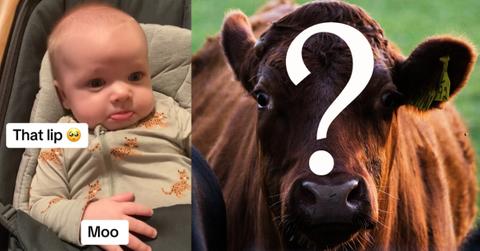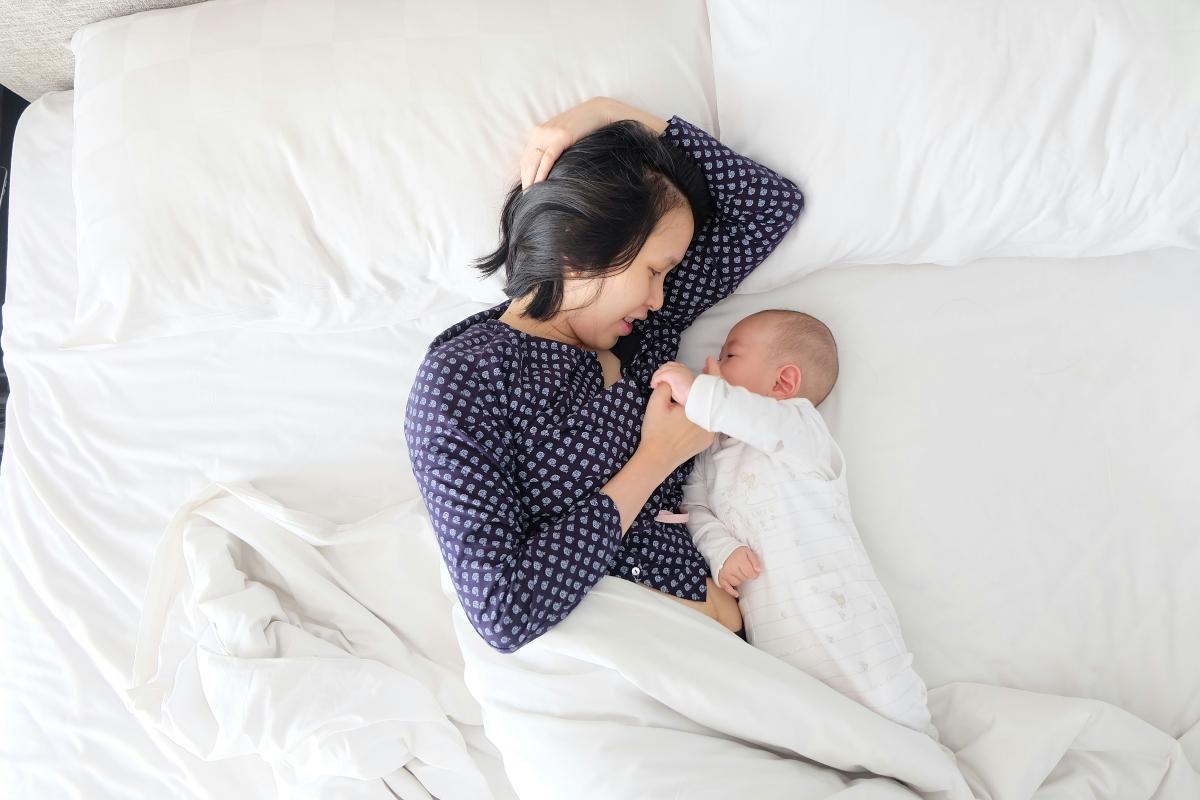Babies Apparently Cry When You Moo at Them, So Do Infants Have a Primordial Fear of Cows? Not Quite
As parents across TikTok have discovered, if you moo at your baby, they will likely start to cry.
Published Oct. 21 2024, 4:55 p.m. ET
TikTok is a hotbed of weirdness. People log on to the social media app to share their strangest and most unique moments, and also the most relatable ones. Viewers scroll through video after video of people behaving in ways that make them whisper, "What?!" to their cell phones. This is just kind of the weird social media contract we all engage in and how modern society functions these days.
Yet weirdness is often relegated to a certain niche type of human. Whether you're on NerdTok, BookTok, MomTok, HealthTok, or any other of a million Toks that cater to your individual algorithm, few trends are universal enough to extend throughout all of them. We may have finally found a common thread that ties all of humanity together from our very foundations: Babies cry when you moo at them. But why? Here's a look at the odd trend and why babies might engage in the behavior.
Babies cry when you moo at them, and yes it seems to be nearly universal.
If you look up "baby moo" or any phrase that includes "baby" "cry" and "moo," you'll find a plethora of videos of parents trying the trend out. Apparently, all you need is a baby and a voice box.
As parents across TikTok have discovered, if you moo at your baby, they will likely start to cry. But why? Is there some reason human infants need to fear cows? The answer is probably a lot more practical and a lot less interesting than people are theorizing on social media. Babies are biologically primed to be soothed by soft and familiar sounds. A caregiver mooing loudly in their face generally fits neither of those criteria.
A sudden, deep, relatively loud sound is enough to startle anyone. The babies don't necessarily seem startled, but they do seem rattled. It seems likely that the babies feel as though they're being yelled at or scolded. Because they can't understand language fully yet, they're reacting to tone of voice and volume. The "moo" sound is also somewhat similar in an acoustic sense to the sound of a baby's cry. It's a simple familiar response to an unfamiliar stimulus.
Not everyone loves the trend.
Most of the internet is charmed by the videos flooding TikTok of babies reacting badly to their caregivers' moos. But that doesn't mean that everyone is on board. As with most parenting trends, there are some detractors.
Some people are joking that they need to find a baby of their own to confirm the trend with. Others are cracking jokes about how the babies' faces seem to quickly turn into the crying emoji. But some are calling the trend out for being mean-spirited.
Under a compilation, one user wrote, "She looks so sad, I couldn't do it." Another added, "This is too sad." One user added a sad face emoji with the comment, "Oh the poor babies."
All in all though, it seems like a fairly harmless trend. That's assuming, of course, that caregivers aren't mooing at their devastated babies on a regular basis just to see them cry.

